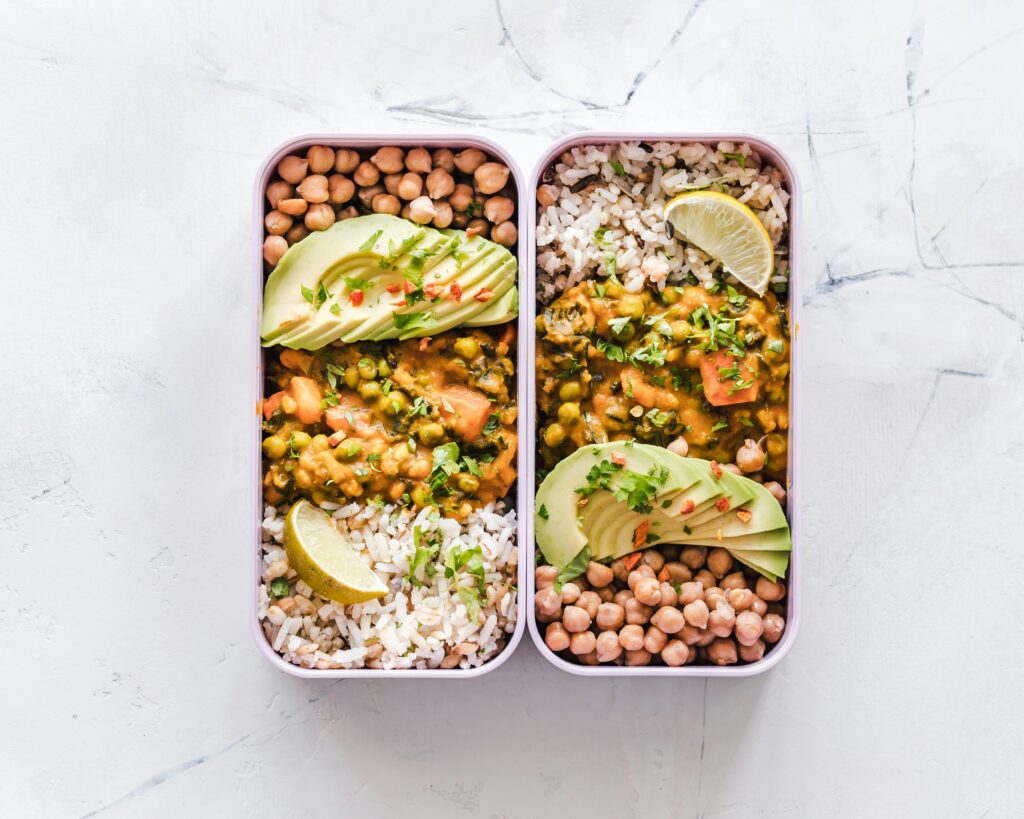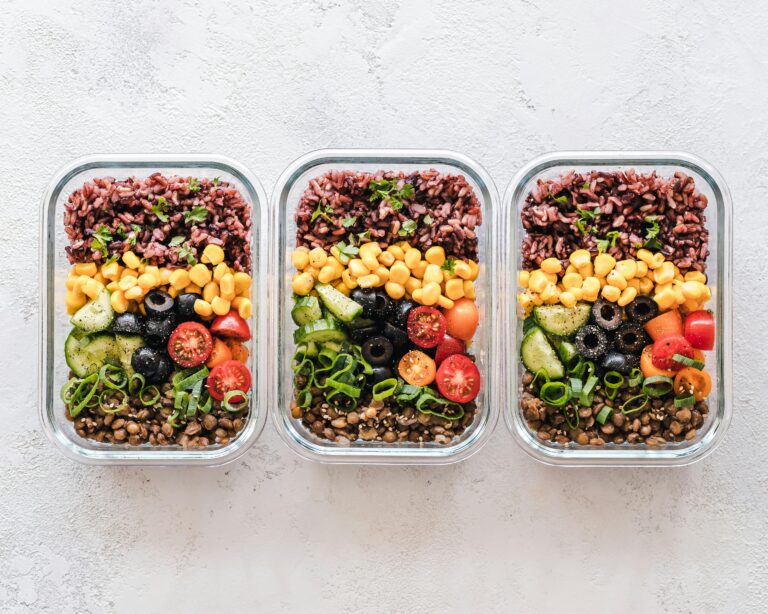Low Carb Diet Essentials: What You Need to Know

Table of Contents:
Overview
In a world flooded with conflicting advice and ever-evolving fat loss trends, separating fact from fiction when it comes to low carb diets can be an overwhelming challenge.
Low carbohydrate diets have been the subject of much debate in recent years. Some argue that they are unhealthy and unsustainable, while others swear by their effectiveness for fat loss and improved health. So, what’s the truth?
Scientific research has shown that low carb diets can indeed be an effective tool for fat loss. A study published in the New England Journal of Medicine found that participants who followed a low-carb diet lost more weight than those on a conventional diet (New England Journal of Medicine, 2003). This is because when you cut carbs, you reduce insulin levels in your body which causes your body to burn stored fat for energy instead of carbohydrates.
Moreover, low carb diets are not just about losing weight; they also have many health benefits. They can help control blood sugar levels, reduce heart disease risk factors like high cholesterol and blood pressure, and even improve brain function.
However, it’s important to note that not all low-carb diets are created equal. Some may involve eating large amounts of unhealthy fats and proteins which can lead to other health problems down the line. Therefore, it’s crucial to follow a well-formulated low-carb diet plan that includes plenty of vegetables and lean proteins.
But how do you navigate this sea of information and misinformation about low-carb diets? How do you know which foods to eat and which ones to avoid? And most importantly, how do you make sure you’re getting all the nutrients your body needs while still losing weight?
This article explores how to the power of low-carb eating in a way that’s healthy, sustainable, and unbelievably effective.
Understanding Low Carb Diets
A low carb diet is a dietary approach that restricts carbohydrate intake, typically to fewer than 50-100 grams per day. This reduction in carbohydrates prompts the body to enter a state of ketosis, where it begins to burn stored fat for energy instead of relying on glucose derived from carbs. By limiting carb intake, individuals can initiate fat loss and achieve their weight loss goals more effectively.
The science behind low carb diets is rooted in metabolic physiology. When carbohydrates are restricted, the body’s insulin levels decrease, signalling to the liver to produce ketones from fat stores. These ketones serve as an alternative fuel source for the body and brain, allowing individuals to sustain energy levels while promoting fat burning.
Research, including studies published in esteemed journals like the New England Journal of Medicine, has consistently shown that low carb diets can lead to greater weight loss compared to traditional low-fat diets. Moreover, low carb diets have been associated with improvements in blood sugar control, insulin sensitivity, and various markers of metabolic health.
Benefits of Low Carb Eating
Following a low carb diet offers a multitude of potential benefits, making it an attractive dietary approach for individuals seeking to improve their health and well-being.
One of the most notable advantages of low carb eating is its effectiveness in promoting weight loss. By reducing carbohydrate intake and focusing on nutrient-dense foods, individuals can initiate ketosis, a metabolic state where . Numerous studies have demonstrated the efficacy of low carb diets for weight loss, with research published in respected journals like the New England Journal of Medicine consistently showing greater weight loss among participants following low carb eating plans compared to traditional low-fat diets.
In addition to facilitating weight loss, low carb diets can also lead to improvements in blood sugar control and insulin sensitivity. By minimizing spikes in blood sugar levels, low carb eating can help individuals manage conditions like type 2 diabetes and prevent complications associated with unstable blood sugar levels. Research has shown that low carb diets can lead to reductions in HbA1c levels, a marker of long-term blood sugar control, and improvements in insulin sensitivity, contributing to better overall metabolic health.
Furthermore, many individuals report experiencing increased energy levels and better mental clarity when following a low carb diet. By stabilizing blood sugar levels and reducing reliance on carbohydrates for energy, low carb eating can prevent energy crashes and promote sustained mental focus throughout the day.
Studies have also suggested a link between low carb diets and improved cognitive function, highlighting the potential cognitive benefits of this dietary approach.
In summary, low carb eating offers a range of potential benefits, including weight loss, improved blood sugar control, increased energy levels, and enhanced mental clarity. These benefits are supported by scientific research, making low carb diets a promising option for individuals looking to optimize their health through dietary choices.
Tips for Success on a Low Carb Diet
Starting a low carb diet can be both exciting and challenging, but with the right approach, you can set yourself up for success. Here are some practical tips to help beginners navigate their low carb journey:
Meal Planning
One of the keys to success on a low carb diet is meal planning. Take some time each week to plan out your meals and snacks, ensuring they align with your low carb goals. Choose recipes that are simple, flavorful, and incorporate a variety of proteins, healthy fats, and non-starchy vegetables. Having a meal plan in place will help you stay on track and avoid reaching for high-carb convenience foods when hunger strikes.
Grocery Shopping Advice

When grocery shopping for your low carb diet, stick to the perimeter of the store where you’ll find fresh produce, meats, and dairy products. Avoid the aisles filled with processed foods and sugary snacks that can derail your progress. Focus on stocking up on low carb essentials like lean meats, leafy greens, avocados, nuts, seeds, and low carb dairy options like Greek yogurt and cheese.
Handling Social Situations
Social situations can present challenges when you’re following a low carb diet, but with a bit of planning, you can navigate them successfully. If you’re attending a gathering or dining out at a restaurant, take a look at the menu beforehand and identify low carb options. Opt for dishes that are centered around protein and non-starchy vegetables, and don’t be afraid to ask for substitutions or modifications to suit your dietary needs. Additionally, consider bringing a low carb dish to share at social events to ensure there’s something available that fits your eating plan.
By incorporating these practical tips into your low carb lifestyle, you can set yourself up for success and enjoy the many benefits of this dietary approach. Remember to stay consistent, listen to your body, and celebrate your progress along the way. With dedication and perseverance, you can achieve your health and weight loss goals on a low carb diet.
Low Carb Ingredients Guide
Navigating the world of low carb eating starts with understanding the key ingredients that form the foundation of this dietary approach. By incorporating these staple ingredients into your meals, you can create delicious and satisfying dishes that support your low carb goals. Here’s an overview of common low carb ingredients to include in your culinary repertoire:
Lean Proteins
Lean proteins are essential for building and repairing tissues, supporting muscle growth, and keeping you feeling full and satisfied. Opt for protein sources such as chicken breast, turkey, lean cuts of beef and pork, fish like salmon and tuna, and eggs. These protein-rich foods are low in carbs and high in nutrients, making them ideal choices for your low carb meals.
Non-Starchy Vegetables
Non-starchy vegetables are packed with essential vitamins, minerals, and fiber while being low in carbs and calories. Incorporate a variety of colorful vegetables into your meals, such as leafy greens like spinach, kale, and lettuce, cruciferous vegetables like broccoli, cauliflower, and Brussels sprouts, and other options like bell peppers, zucchini, cucumber, and tomatoes. These nutrient-dense veggies add flavor, texture, and volume to your dishes without significantly impacting your carb intake.
Healthy Fats
Contrary to popular belief, fats are an important component of a low carb diet and can contribute to feelings of satiety and satisfaction. Choose healthy fats such as avocados, nuts and seeds, olive oil, coconut oil, and fatty fish like salmon and mackerel. These fats provide essential fatty acids and fat-soluble vitamins while keeping your meals flavorful and satisfying.
Low Carb Substitutes
When it comes to low carb cooking, there are plenty of substitutes available for high-carb ingredients. For example, cauliflower can be used as a low carb alternative to rice or potatoes, zucchini can be spiralized into noodles for a pasta replacement, and almond or coconut flour can be used in place of traditional wheat flour for baking. These low carb substitutes allow you to enjoy your favorite foods while sticking to your low carb eating plan.
By incorporating these common low carb ingredients into your meals, you can create a diverse and flavorful menu that supports your health and weight loss goals on a low carb diet. Experiment with different recipes and ingredients to find combinations that work best for you, and enjoy the delicious benefits of low carb eating.
Easy & Delicious Low Carb Recipes
Breakfast Recipes
Start your day on the right foot with these mouthwatering low carb breakfast recipes that will keep you fueled and satisfied until lunchtime:
Low Carb Smoothies
- Blend together spinach, avocado, unsweetened almond milk, and a scoop of protein powder for a creamy and nutritious green smoothie.
- Combine frozen berries, Greek yogurt, and a splash of coconut water for a refreshing and protein-packed berry smoothie.
- For a tropical twist, blend coconut milk, pineapple, and a handful of spinach for a vibrant and energizing smoothie bowl.
Egg Muffins
- Whisk together eggs, diced vegetables, and shredded cheese, then pour the mixture into muffin tins and bake until set for a convenient grab-and-go breakfast option.
- Mix cooked bacon or sausage with beaten eggs and pour into muffin cups, then bake for a protein-rich breakfast that’s perfect for meal prep.
Avocado and Bacon Breakfast Bowls
- Top halved avocados with cooked bacon crumbles, diced tomatoes, and a sprinkle of cheese for a simple yet satisfying breakfast option.
- For extra flavor, drizzle with hot sauce or a dollop of Greek yogurt before serving.
Lunch & Dinner Recipes
For lunch or dinner, whip up these flavorful low carb recipes that are sure to please your taste buds:

Cauliflower Rice Stir-Fry
- Sauté cauliflower rice with your choice of protein (such as chicken, shrimp, or tofu), mixed vegetables, and a splash of soy sauce or coconut aminos for a healthy and satisfying stir-fry.
- Add minced garlic, ginger, and chili flakes for a kick of flavor, and garnish with chopped green onions and sesame seeds before serving.
Zucchini Noodle Pasta
- Spiralize zucchini into noodles, then toss with your favorite pasta sauce and cooked protein (such as ground turkey or grilled chicken) for a low carb twist on classic pasta.
- Top with fresh basil, grated Parmesan cheese, and a drizzle of olive oil for an extra burst of flavor.
Lettuce Wrap Tacos
- Fill large lettuce leaves with seasoned ground beef or turkey, diced tomatoes, avocado slices, and shredded cheese for a light and refreshing take on tacos.
- Serve with salsa, sour cream, and a squeeze of lime juice for added zest.
Snack Recipes
For on-the-go snacking or satisfying your afternoon cravings, try these quick and easy low carb snack recipes:
Cheese and Veggie Skewers
- Thread cherry tomatoes, cucumber slices, and cubes of cheese onto skewers for a colorful and protein-packed snack.
- Serve with a side of hummus or guacamole for dipping.
Almond Butter Energy Bites
- Mix together almond butter, shredded coconut, chopped nuts, and a drizzle of honey, then roll into bite-sized balls for a delicious and energizing snack.
- Keep in the fridge for a quick grab-and-go option whenever hunger strikes.
Cucumber and Cream Cheese Roll-Ups
- Spread cream cheese onto cucumber slices, then roll up and secure with toothpicks for a light and refreshing snack.
- Sprinkle with everything bagel seasoning or chopped herbs for extra flavor.
Dessert Recipes
Indulge your sweet tooth without derailing your low carb diet with these delectable dessert recipes:
Sugar-Free Cheesecake
- Mix together cream cheese, Greek yogurt, and a sugar substitute, then pour into a prepared crust and bake until set for a creamy and indulgent cheesecake.
- Top with fresh berries or a sugar-free fruit compote for a burst of sweetness.
Dark Chocolate Avocado Mousse
- Blend together ripe avocados, cocoa powder, almond milk, and a touch of sweetener until smooth and creamy, then chill until set for a rich and decadent mousse.
- Garnish with shaved dark chocolate or a sprinkle of sea salt for added flair.
Coconut Flour Cookies
- Combine coconut flour, almond flour, baking soda, and a sugar substitute, then mix in melted butter and vanilla extract until a dough forms.
- Roll into balls, flatten with a fork, and bake until golden brown for a chewy and satisfying cookie.
These delicious low carb recipes prove that you don’t have to sacrifice flavor to enjoy a nutritious and satisfying diet. With a little creativity and the right ingredients, you can indulge in a wide variety of tasty dishes while still achieving your health and weight loss goals.
Conclusion
In conclusion, adopting a low carb diet offers a plethora of benefits for both your health and weight management goals. Throughout this article, we’ve explored the science behind low carb eating, practical tips for success, and a variety of delicious recipes to inspire your culinary journey.
By reducing your intake of carbohydrates and focusing on nutrient-dense foods like lean proteins, non-starchy vegetables, and healthy fats, you can support fat loss, improve blood sugar control, increase energy levels, and enhance mental clarity. These benefits are backed by scientific research and countless success stories from individuals who have embraced the low carb lifestyle.
We encourage you to incorporate low carb recipes into your meal plans and explore the wide range of flavors and possibilities that this dietary approach has to offer. Whether you’re seeking to shed excess weight, manage chronic health conditions, or simply improve your overall well-being, low carb eating can be a sustainable and enjoyable way to achieve your goals.
For more low carb resources, including meal plans and additional recipes, be sure to explore the rest of our blog. Join the community of low carb enthusiasts and embark on a journey towards better health and vitality today.






